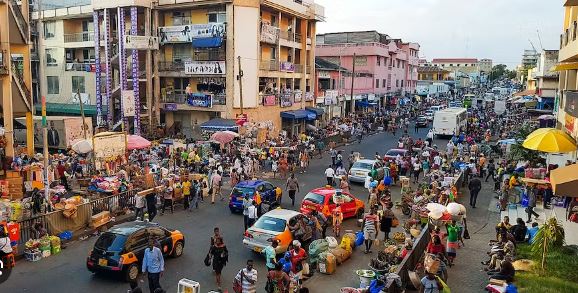The Ghana National Chamber of Commerce and Industry (GNCCI) wants government to reconsider the current tax system – allowing private businesses to thrive and reduce relocation and collapse.
This is in relation to instances in the past few months when several notable companies such as Nivea, Glovo, Bic Pens, Dark and Lovely, GAME, Jumia Foods and other transnational companies have either left or are considering leaving the market, attributing their decision to high taxes and operational costs.
Departure of these multinational companies has not only affected job creation but also had a prominent effect on the country’s GDP and tax revenues.
Dr. Clement Osei Amoako, President-GNCCI, at the inauguration of their new National Secretariat building emphasised a need for government and the central bank to collaborate properly in bringing down cost of doing businesses – which has hampered private sector growth and led to relocation and closure.
Highlighting challenges facing local businesses, the president cited excessive taxes, high lending rates, depreciation of the local currency and supply-chain bottlenecks as key limitations to growth, particularly for Small and Medium Enterprises.
However, Mr. Osei Amoako acknowledged government’s success in renegotiating external debt under the International Monetary Fund programme which has reduced the country’s interest payments, as well as government’s decision to avoid introducing new taxes in the mid-year budget review.
“These steps have raised some confidence in the business environment amid the crucial times we find ourselves in as a country.”
Minister of Trade and Industry, Kobina Tahir Hammond, commended GNCCI for acquiring a new headquarters and pledged his ministry’s commitment to continuously supporting the Chamber in its mission of supporting and serving local businesses.
He expressed his eagerness to collaborate on policies that will drive economic growth and support the private sector.
The trade minister noted that collaboration with GNCCI will facilitate a more competitive industry to become more export-oriented and take advantage of the African Continental Free Trade Area Agreement along with other trade agreements, both bilateral and multilateral.
Worryingly, Ghana has experienced a wave of closures by major international companies that previously provided services to Ghanaians.
Since 2022, unstable economic conditions in the country – marked by fluctuating value of the Ghanaian cedi, high inflation rates and soaring cost of imports – have prompted many international corporations to relocate their operations elsewhere.










